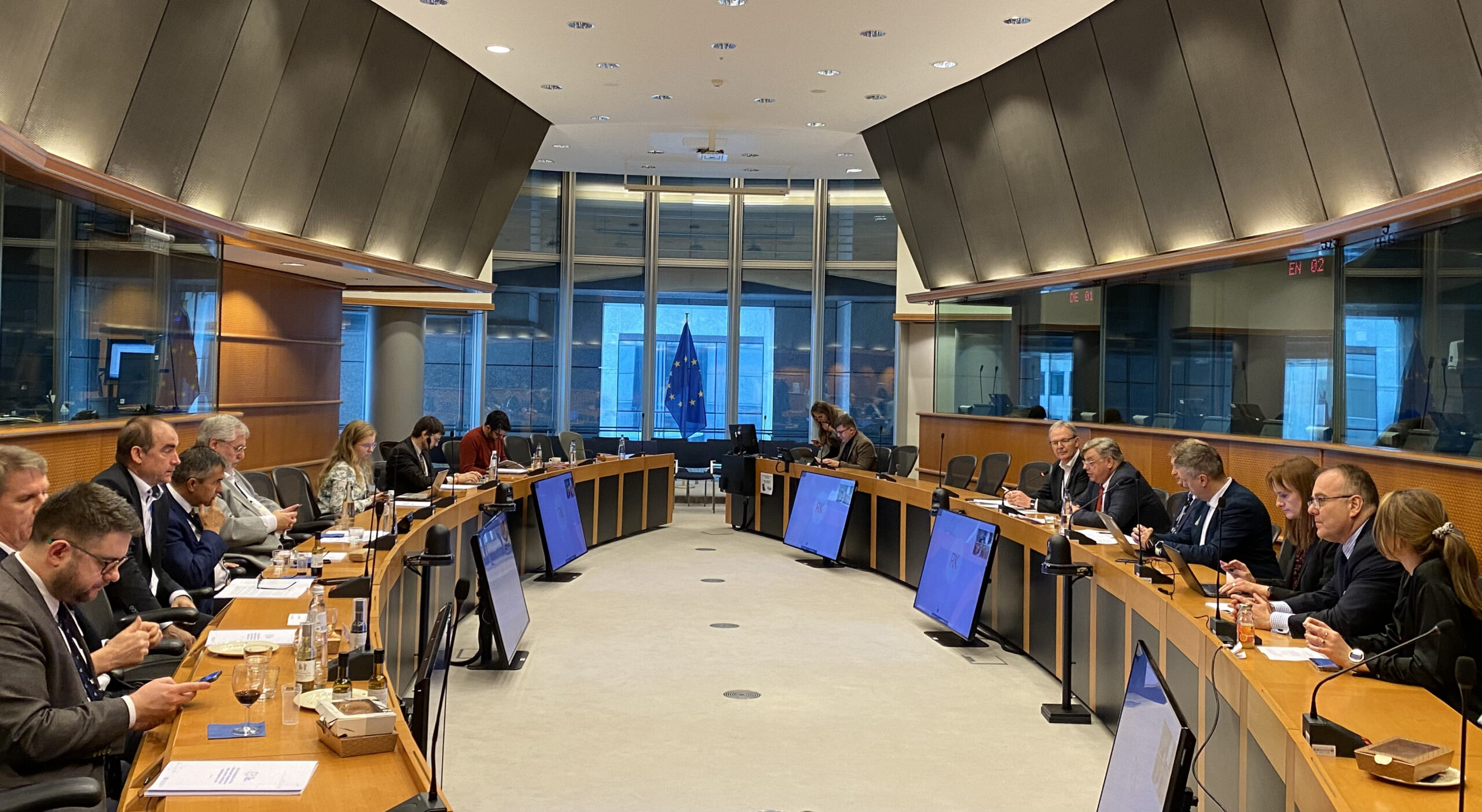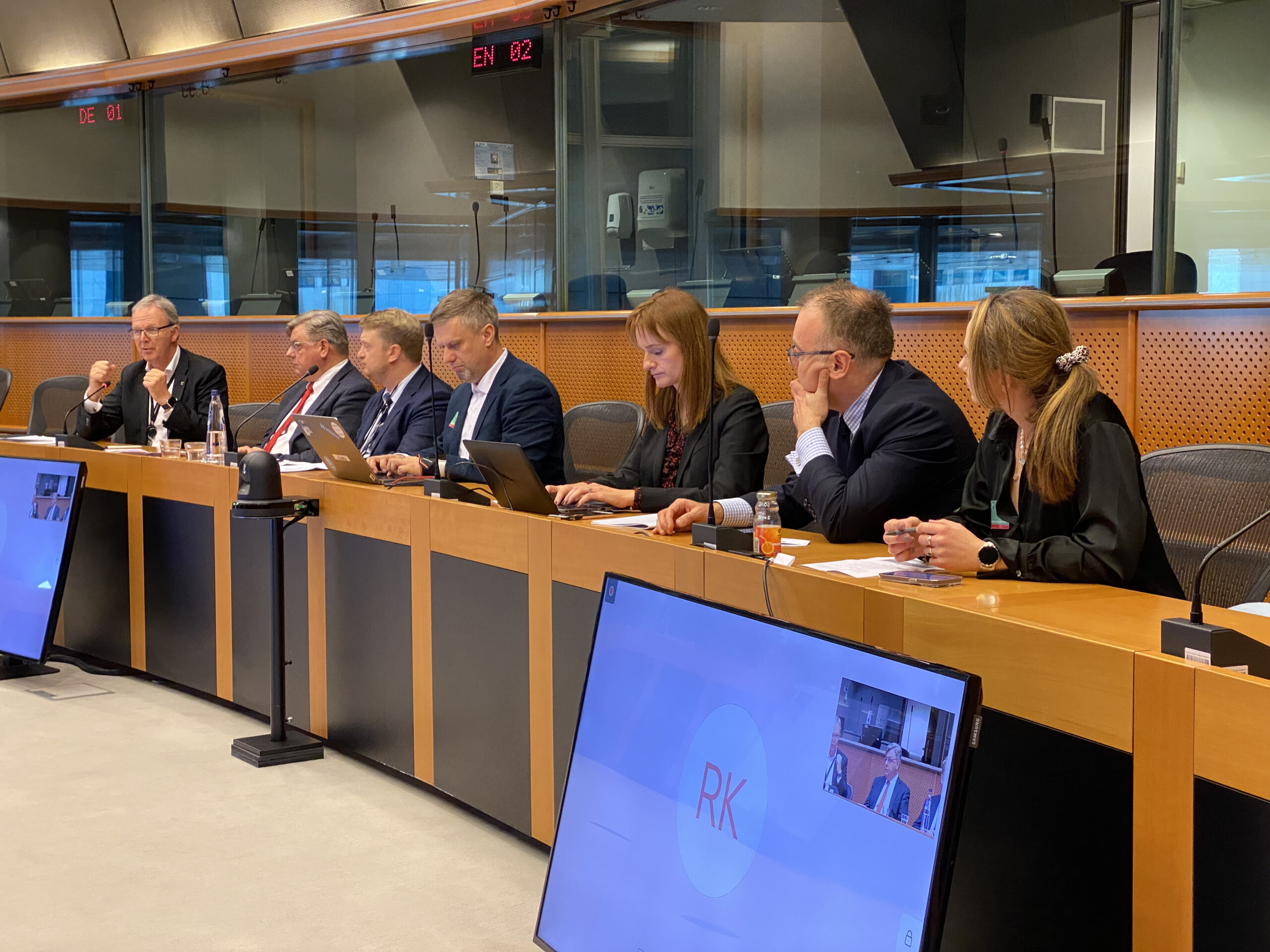AI Act and Data Act

On Tuesday, 8 November 2022, SME Connect in partnership with the Union of Entrepreneurs and Employers (ZPP) and European Enterprise Alliance (EEA) held a discussion on AI Act and Data Act. The debate took place in the European Parliament in Brussels, was hosted by Kosma Zlotowski MEP and was joined by Axel Voss MEP; Adam Bielan MEP; Katarzyna Prusak-Gorniak, PermRep of Poland to the EU; Roman Bieda, President of the Board of the AI LAW TECH Foundation; Grzegorz Zajaczkowski, Chief Data Officer, Polskie Porty Lotnicze; Anna Mazur from Allegro Digital Poland.
After the welcome words of Kosma Zlotowski MEP, Axel Voss MEP opened with a statement of how crucial the digital lawmaking is to the European general competitiveness in the digital race. Katarzyna Prusak-Gorniak from the PermRep of Poland provided an update on the Council perspective and the timelines suggesting that both AI Act and Data Act may be adopted in 2023. Adam Bielan MEP warned that the European Commisision draft Data Act still requires improvement to unlock the potential of the data economy: more specifically this conserns provisions that are not in favor of SMEs when it comes to protecting them from unfair terms in data-sharing and related contractual terms. European Commission is expected to develop and recommend a non-binding model of contractual terms. More hurdles to be found in the proposal targeting digital cloud services as it does not recognise that the use of cloud services differs between market participants.

Roman Bieda, Attorney and CEO of the AI LAW TECH Foundation, has spoken about advantages and disadvantages of the AI Act from the SME perspective. Among advantages, Mr Bieda highlighted the proposal on detailed guidelines for in-practice implementation of AI Act including the templates of documents required by the AI Act. He also complemented the decrease of the administrative fine for SMEs. However, in his view, the AI Act remains a massive challenge. Most provisions are ambiguous, presenting liability risk for startups and hence having them offshore their AI developing. Requirements for data also present a lot of hurdles mostly to small companies, not to big ones.
“We produce normal software, not AI” “Yes, you produce AI!” – SMEs don’t know about the AI Act.
Mr. Bieda kept emphasizing again and again how importnat it is to keep SMEs informed and information simple and accessible. Additionally, he warned about many startups and developers potentially moving to USA or Israel where training of AI is less regulated by the fair use.
Regulation is changing too fast and is expensive
Grzegorz Zajaczkowski, the Chief Data Officer of Polskie Porty Lotnicze, among the advantages listed the regulatory sandboxes and the current projects that are supported in Poland. However, he admits, that EU digital domain is overregulated. Moreover, there is an overwhelming lack of engeneers skilled to implement the new regulatory standards. Regulation is changing too fast, especially when it comes to high-risk systems that require time for implementation. And, of course, the high costs that implementation demands, including upskilling of the personnel. That also slows down operations across the supply chain as all partners need to transit towards the new standards.
Anna Mazur from Allegro, the Polish e-commerce platform, was mostly supportive of both proposals like the provision on the risk-based approach. She shared the view with the other panelists on the required precision of definitions as well as the much needed mindfulness when it comes to implementation by SMEs. Ms Mazur suggested that more proportionality is needed when it comes to high-risk AI systems provisions.
Katarzyna Prusak-Gorniak from the PermRep of Poland in her final comments explained that the precision of definitions, when it comes to new legal frameworks, is hardly achievable, minding the variety of the 27 EU Members State’s legal systems. She also emphasized the importance of the regulatory early-warning for SMEs to enable their participation in the public consultations of the European Commission and hence secure their input on what could be regulated and how.